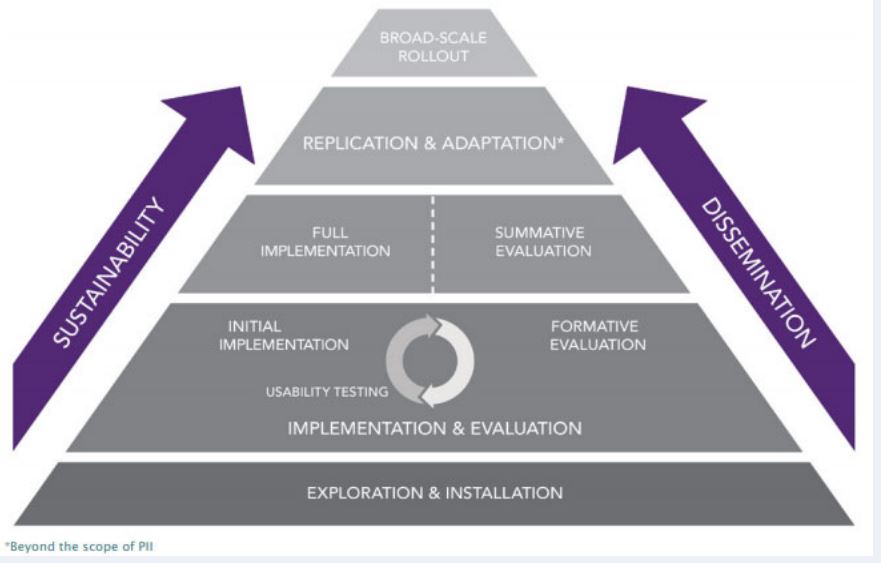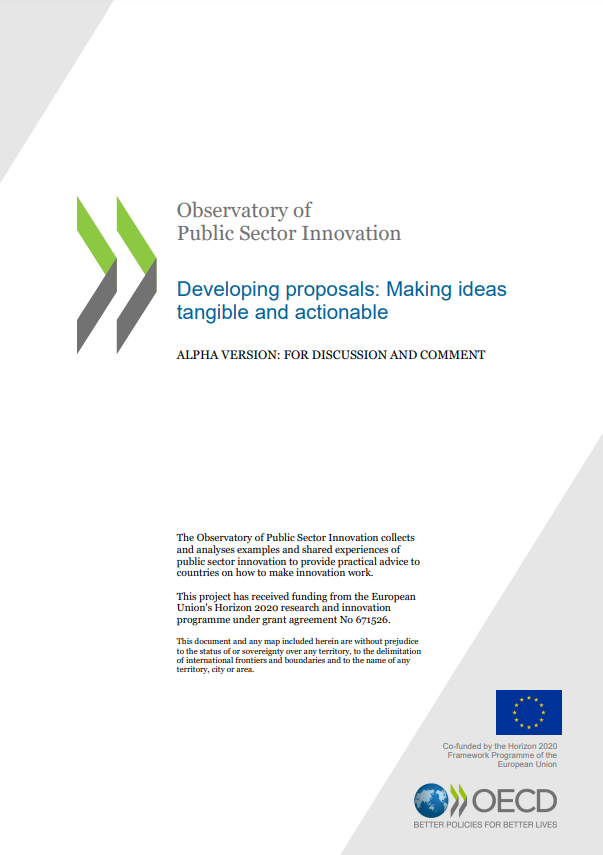Developing Proposals: Making ideas tangible and actionable (Innovation Lifecycle 3/6)

Overview
Governments operate in a world of change (and sometimes turmoil) where there are increasing or changing expectations from citizens about what public services are and can be. As new possibilities are demonstrated around the world – by other governments, by industry or not‐for‐profits, in consumer products and in services – there is a legitimate expectation by citizens that their own governments can and will do better. If, or when, such expectations are unmet, the level of trust in public institutions and the corresponding faith in their ability to deliver will suffer.
Governments are also operating in a world of constraints (financial, political and legal). Rarely is it the case that governments can simply mandate for something to be or spend their way out of a problem. Governments need to become more effective and more productive, to make the most of the resources they do have. To achieve an increase in effectiveness and productivity will require changing how things are done.
Government also face the challenge that they cannot act alone and that many problems (e.g. obesity or climate change) require the active participation of citizens if there is to be progress. So governments need to look to new ways of thinking and doing if they are to achieve better results, and many of these new ways will involve a changed, and potentially more inclusive, relationship with citizens.
For these reasons and more, the public sector is faced with a need to do things differently. That means doing new things (and stopping old ones), thinking about things in new ways (and ceasing to think in old ways), and organising and working with others differently. That means innovation – the implementation of novel ideas that have an impact.
OECD and European Commission Studies on Innovation Lifecycle
The OECD is undertaking a series of studies to better understand the innovation process. This series of studies, funded under the European Commission’s Horizon 2020 programme, aims to take stock and review what is known, identify possible gaps in that knowledge, and to provide guidance about:
- The issues faced by innovators and organisations when trying to introduce novel initiatives or ways of thinking
- What tools and methods are most appropriate at different stages of the innovation process and under what conditions
- How a stronger innovation capability may fit with existing processes and initiatives.
The studies will contribute to a better understanding of how public sector organisations can effectively use the innovation process to get better outcomes, including by:
- Identifying problems and learning where and how an innovative response is needed
- Generating and sourcing ideas to respond to those problems
- Developing proposals that turn those ideas into business cases that can be assessed and acted upon
- Implementing the innovation projects that proceed
- Evaluating (and integrating) the outcomes of those innovation projects and whether the innovative initiative has delivered what was needed
- Diffusing the lessons from those evaluations, and using those lessons to inform other projects and how other problems might be responded to.

Feedback loops in proposal development: The PII approach
Permanency Innovation Initiative was a 5 year initiative of the United States Department of Health and Human Services’ Administration for Children and Families that included various grantees in the field of child welfare policy, aiming at developing strategies for their consistent implementation. Its explicit goals were “build or enhance the capacity of child welfare agencies to develop, implement, and evaluate research‐informed innovations and adapted ESIs and to provide evidence about program effectiveness.”
It is an example of the use of feedback loops to inform proposal development and enable sustainability of a policy implementation. Sustainability required that training, monitoring, and data systems were in place and running during and after the project. The project teams also considered procedures, financial means and political commitment, and other structural changes fundamental to the sustainability of services developed in the project.
???????? United States

Developing Proposals: Making ideas tangible and actionable
Published on 8 January 2018.
